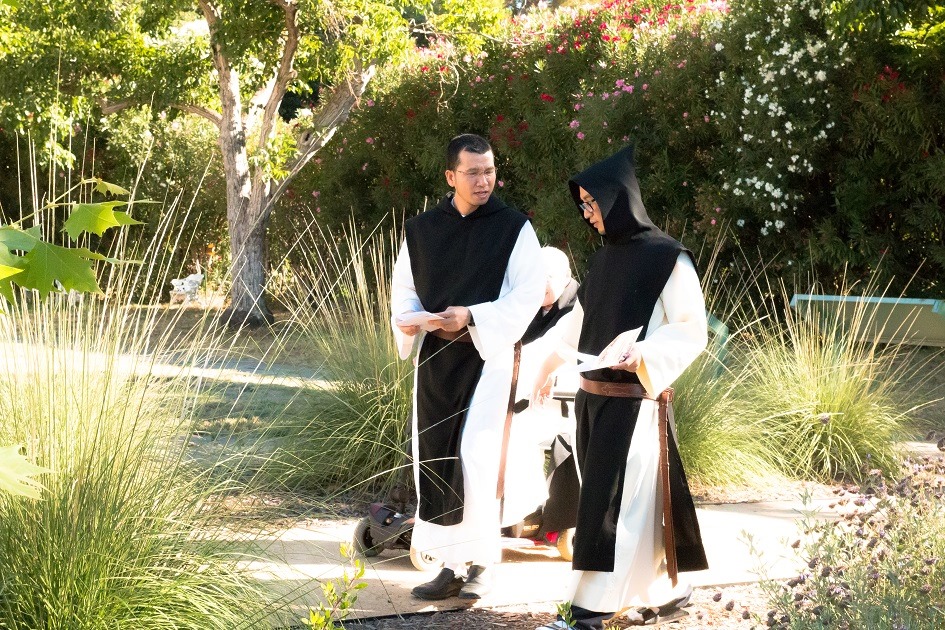Br. Peter Damian shares on God’s Love and Christ as Our Mediator as taught by Blessed William of St. Thierry, a 12th Century Cistercian abbot:
William begins his treatise by speaking of the art of love and claims that the teaching of this art belongs exclusively to God. Love, as William puts it, is a power that carries the soul along by a natural tendency, as God created it to do, towards its end. For William, love is the motivation, the dynamic driving the soul to the God who is love.
When God created man in his image and likeness, He gave him the will entirely free so that the human soul may be complete and lacking in nothing (Ch.2). Perhaps one of the greatest gifts God gave to the human soul is free will, so that man can love God fully and completely, because man can find his happiness in God and only in God. But unfortunately, just like the angel presumed to likeness to God, the man desired to be like God. Both angel and man failed and have been cast down.
“So the Holy Trinity took the council together”, said William. “The Lord saw how confused everything was, how disturbed for man: nothing held its own place, nothing its own order. He saw that man had gone so far into “the land of unlikeness” that by himself he was unable to return from it, nor could he know how to return.”
What is the concept of “the land of unlikeness” in William’s thought?
Certainly, William was known to be influenced by Augustinian spirituality. Here is what Augustine said in his autobiographical book ‘The Confessions’: “Thus admonished to return to myself, I entered into my innermost parts under Your guidance. I was able, because You became my helper. I entered in and saw with the eye of my soul the Immutable Light, (above this same eye of my soul, and above my mind – not this common light which is visible to all flesh). And he goes on to say, “Shining Your light upon me so strongly, You did strike down my feeble gaze and I trembled with love and awe. I discovered that I was far from You in the area of unlikeness, as if I heard Your voice from on high.” (Book7,10).
St. Augustine might have experienced the physical land of unlikeness when he moved from Africa to Rome in 383. The story recalled that he had a terrible experience of one of the ancient world’s worst voyages and began his first stay in Rome deathly ill (Confession p.41. Ch. 4). This was certainly an agony to Augustine. But I think that from the experience of the physical land of unlikeness, it can lead a person to the experience of the spiritual dimension, if a man is straying so far from his God into the invisible areas of unlikeness.
By divine light, Augustine discovered that he has gone so far from his God. Only God’s light can help him to recognize that he is even lost in the region of unlikeness.
This Augustinian discovery can be suggested as the way of self -knowledge by which Augustine comes to know himself, though not by his own effort but through divine light. One can discover his true self only through Christ, with Christ and in Christ. My neighbor can tell me who I am, but he cannot replace me to discover my true self. In the monastic life, each one of us counts on God’s grace to discover our true self, who we are in the image and likeness of God.
William realizes that even when a man has recognized that he is lost, he is unable to return from it, nor can he know how to return to his Creator. Man comes to surrender to the fact that he cannot save himself. He has lost a direction, just like a man lost in the dark of the forest.
However, there is a solution for man. The Son of God was made man, making himself the medium between God and man through humility, which means His incarnation, to save him who is to be saved. Christ becomes our Mediator, not just for the sole reason of the role of mediation, but for reason of our salvation because the distance between God and us is so far, so deep. It is impossible for man to cross over to the divine side unless God reaches out to us.


